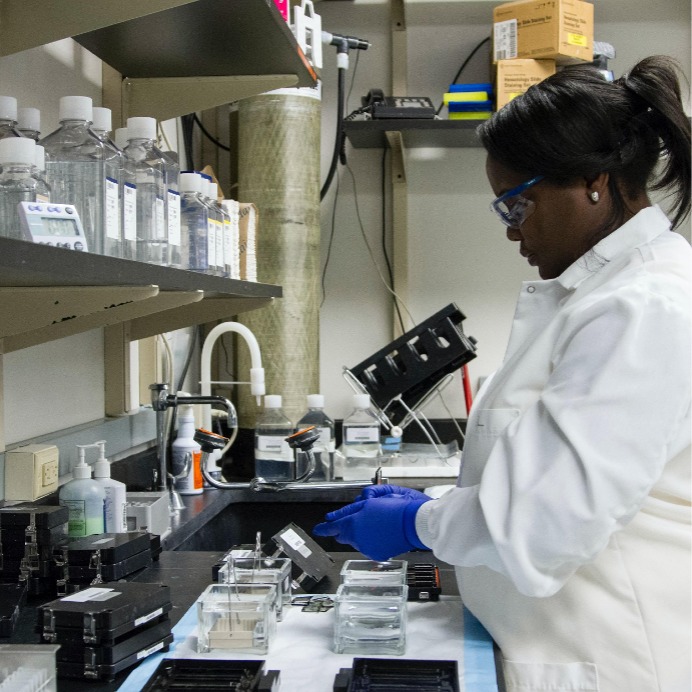By continuing to use our site, you consent to the processing of cookies, user data (location information, type and version of the OS, the type and version of the browser, the type of device and the resolution of its screen, the source of where the user came from, from which site or for what advertisement, language OS and Browser, which pages are opened and to which buttons the user presses, ip-address) for the purpose of site functioning, retargeting and statistical surveys and reviews. If you do not want your data to be processed, please leave the site.
The Voice of People With Breast Cancer
Education
Our Voices Blog
Recognizing CBCN’s Breast Cancer Awareness Month Fundraisers
October is Breast Cancer Awareness Month and each year, we see a surge of individuals, companies, and organizations joining the conversation to raise awareness of breast cancer. Amid the ongoing COVID-19 pandemic, people and organizations participated in virtual events, used their social media to raise awareness, and donated to various breast cancer organizations.
Making the Right Choice
Recently, after spending eight hours with abdominal pain so intense I was doubled over, I conceded to my sister Liz, who insisted a trip to the hospital was necessary and crawled downstairs, ordered an Uber, pulled a patterned facemask over my nose and mouth and went. Twelve hours, three hits of morphine and one magnetic resonance imaging (MRI) scan of my lower abdominal organs later, the emergency room doctor told me a lesion on the right side of my liver was the culprit. Based on the scans I’d had taken of my major organs prior to my breast cancer surgery, the lesion was new and potentially the result of the original tumor and/or the treatment I’d received post-operation. An ultrasound followed, revealing the lesion’s 5cm length by 5cm depth by 5cm width. A second MRI has been scheduled.
Feeling Pain and Sensations in the Area of Your Removed Breast? You May be Experiencing Phantom Breast Syndrome
Some breast cancer patients who had a mastectomy have reported feeling painful and non-painful sensations in the area of the breast that was removed. This condition, known as phantom breast syndrome (PBS), usually start in the first year after a mastectomy. Sensations due to PBS usually occur in the chest, armpit, surgical scar, and inner arm and last far beyond the expected time for post-surgical pain. The prevalence of PBS is not exactly known, most likely due to a lack of reporting as patients either feel like it is not that big of a deal or because they find it hard to describe. PBS has been reported to affect anywhere between 4% to 56% patients; other studies report that it affects anywhere between 10% to 55% of women.
Three Sisters Fighting Cancer Together
I am a 51-year-old woman from the Loire Valley. I live near Orléans, 120 kilometres south of Paris. I grew up surrounded by women. I am the youngest of five sisters; twenty years separate me from my oldest sister and ten years separate me from the fourth one. Our mother received her breast cancer diagnosis in 1985 and at the time, cancer care was awful. My father died from a cardiac arrest in July 1986, probably caused by grief. My mother was brave and fought as much as she could, but she passed away in May of 1989 when I was 20 years old. Because of her breast cancer diagnosis, my sisters and I have closely monitored our risk of developing breast cancer.
Blood Clots and Cancer: What Is It and Are You at Risk?
When you have a cut or an injury, blood clots are useful in stopping the bleeding in order to help your body heal. However, there can be a negative side to blood clots. If a blood clot develops in a vein, which is called a venous thromboembolism (VTE) or venous thrombosis, or if it develops in a deep vein, which is called a deep vein thrombosis (DVT), there may be cause for concern.
Sexual Health and Intimacy Tips for Breast Cancer Patients
Sex may be something that isn’t frequently discussed by doctors or oncologists or even friends, but the sexual changes and adjustments you go through following a breast cancer diagnosis can be enormous for you and your partner, depending on how big a part it was in your life before diagnosis and treatments.
Lymphedema Management: Short and Simple Exercises for You
Lymphedema is abnormal swelling of the arms, hands, breast, or torso. Breast cancer-related lymphedema generally occurs when the lymph nodes or the lymphatic vessels are damaged or removed following breast cancer treatment. When this happens, blockage in the lymphatic system prevents lymph fluid from properly draining which is what leads to the swelling.
Why It’s Important to Be Your Own Advocate
The Merriam-Webster dictionary defines ‘advocate’ as a verb that means “to support or argue for”. ‘Self-advocacy is defined as “the action of representing oneself or one's views or interests”. While the word, advocate might make us think of protests or political signs, that is not always the case. As someone with a breast cancer diagnosis, self-advocacy and being an advocate simply means being a part of your health care team. It means knowing yourself and speaking up for yourself to make sure that your cancer care needs are met. Self-advocacy is part of participatory medicine where “patients are actively working alongside their physicians to choose the best course of cancer treatment.”
Breast Cancer Math
Before I was diagnosed, I rarely thought about breast cancer. When I did it was once a year, usually in June, as I was planning the line-up of pink-ribbon beauty products I wanted to feature in the upcoming October issue of FASHION, Salon, 29Secrets or whatever other magazine I was working for at the time. Other than that, it just wasn’t on my radar. No disease was really. My inner circle was healthy, well, that is if you didn’t count my mom’s dad dying of liver sclerosis from alcoholism when I was around five or my paternal grandmother passing from Alzheimer’s when I was in my early thirties.
Metastatic Breast Cancer: The Latest Research and Clinical Trials
Research on breast cancer, and more specifically, metastatic breast cancer (mBC), is critical in helping us better understand this disease. While widespread knowledge of mBC is still limited, there are studies that look specifically at the detection, prognosis and treatment of this type of breast cancer. Similarly, clinical trials on metastatic breast cancer are crucial in helping researchers improve the current standard of care. Below are some of the latest research and some currently recruiting clinical trials on metastatic breast cancer.













